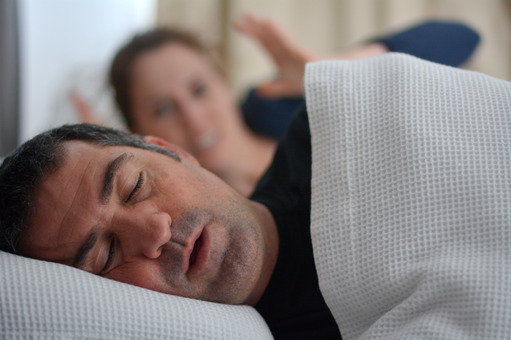
Do you ever find yourself struggling to get a good night’s sleep? You might be one of the millions of Americans dealing with obstructive sleep apnea (OSA). This condition disrupts your breathing patterns while you sleep, leaving you feeling groggy and unrested. But did you know that sleep apnea isn’t just about snoring and feeling tired? It could also be linked to something unexpected: unwanted thoughts. Read on to learn more!
Sleep Deprivation and Unwanted Thoughts
A recent study from the University of York delved into this connection. They found that people who were sleep-deprived struggled more to control intrusive thoughts compared to those who were well-rested. In the study, participants were shown faces paired with either emotionally negative or neutral scenes. After a night of good sleep or no sleep at all, they were asked to suppress thoughts related to those scenes. Surprisingly, the sleep-deprived participants had a much harder time keeping unwanted thoughts at bay compared to their well-rested counterparts. This suggests that lack of sleep can seriously mess with your ability to control your thoughts, especially if you already struggle with mental health issues.
How Does Sleep Apnea Lead to Sleep Deprivation?
Sleep apnea doesn’t just disrupt your breathing – it disrupts your sleep cycle too. Constantly waking up throughout the night means you never get the deep, restorative sleep your body needs. And that lack of quality sleep can lead to more than just feeling tired the next day – it can also mess with your mental and physical health.
Here are some signs that you might be dealing with sleep apnea:
- Moody or irritable behavior
- Forgetfulness or memory issues
- Loud, chronic snoring
- Feeling exhausted during the day
- Waking up with headaches
- Trouble focusing or concentrating
The Importance of Seeking Treatment
If any of the signs above sound familiar, it might be time to talk to your doctor or a sleep specialist. Getting treatment for sleep apnea isn’t just about feeling more rested – it could also help you keep those unwanted thoughts in check. Plus, treating sleep apnea can lower your risk of serious health problems like diabetes, heart disease, and stroke.
About the Author
For more than twenty years, Dr. Jeff Rodgers has dedicated himself to providing top-notch dental sleep services. His passion for helping patients remains as strong as ever since day one. As a certified expert in the field, Dr. Rodgers is a proud member of the American Board of Dental Sleep Medicine. Offering a wide range of treatment options, including oral appliance therapy for sleep apnea, he strives to improve sleep quality. If you’d like to schedule a consultation, don’t hesitate to reach out via our website or call 404-252-1221.
